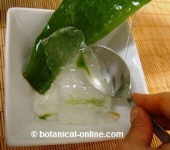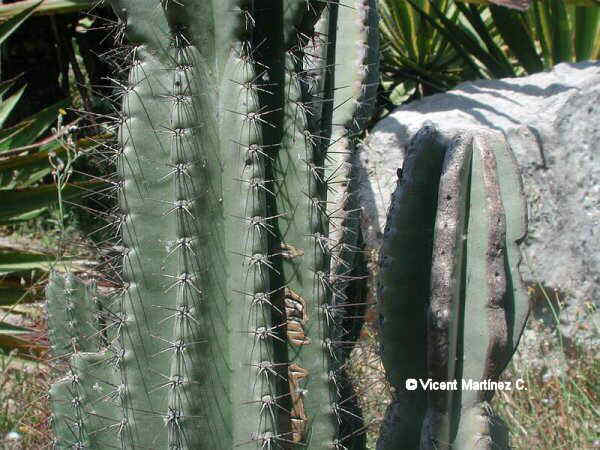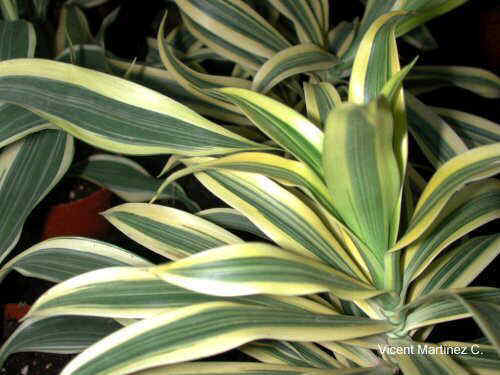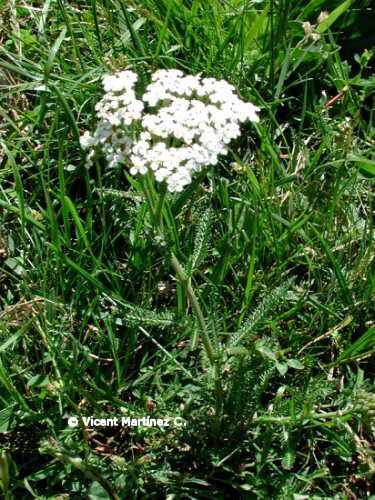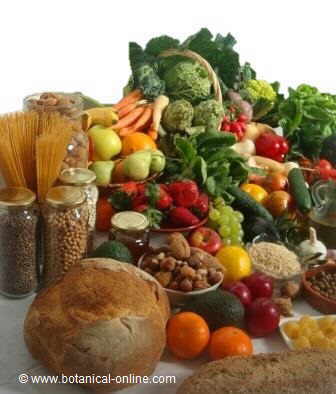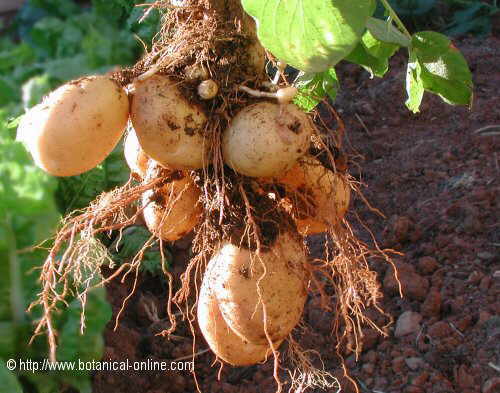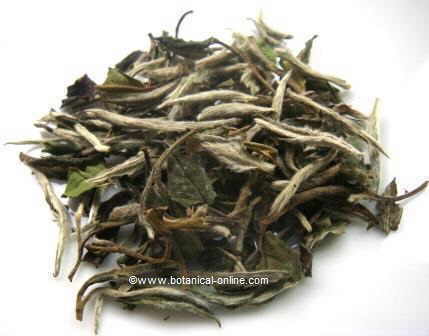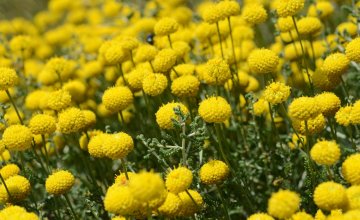Contents
- 1 Methemoglobinemia caused by nitrates in food
- 1.1 What is blue baby syndrome?
- 1.2 Causes of blue baby syndrome
- 1.3 How is methemoglobinemia produced?
- 1.4 Symptoms of blue baby syndrome
- 1.5 How much vegetables can the baby eat without adverse effects?
- 1.6 How to avoid blue baby syndrome?
- 1.7 What foods are rich in nitrates?
- 1.8 Is the consumption of vegetables with nitrates dangerous?
Methemoglobinemia caused by nitrates in food
What is blue baby syndrome?
Blue baby syndrome is a medical term that is used to describe a cyanotic state of the skin of babies and young children (blue skin).
The causes of cyanosis can be diverse, but the most common is the ingestion of food with nitrates, which produce methemoglobinemia.
Causes of blue baby syndrome
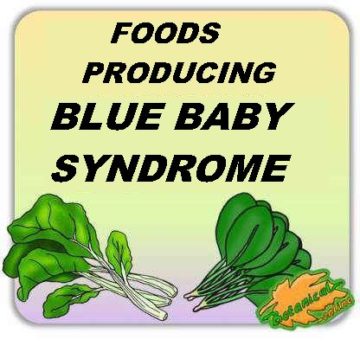
Methemoglobinemia mainly affects infants and young children due to the ingestion of a diet rich in nitrates, mainly when consuming large amounts of spinach or Swiss chard in the vegetable purees.
How is methemoglobinemia produced?
Nitrates are salts found naturally in vegetables, especially green leafy vegetables, such as spinach, chard and lettuce. These components are not toxic, but within the digestive system, part of the nitrates are converted into nitrites, which are indeed toxic.
When nitrates are ingested, part of these are converted into nitrites. Absorbed nitrites reach the bloodstream and combine with hemoglobin, converting it into methaemoglobin, which is a type of hemoglobin unable to fix oxygen and release it to tissues.
Symptoms of blue baby syndrome
The symptoms of nitrate poisoning are due precisely to this anoxia in the tissues or lack or decrease of oxygen in cells, organs or blood. (produced because methemoglobin does not transport oxygen):
- Muscular weakness
- Nausea, vomiting
- Abdominal pain
- Bloody diarrhea
- Hypotension
- Cyanosis or violaceous skin (blue baby syndrome)
How much vegetables can the baby eat without adverse effects?
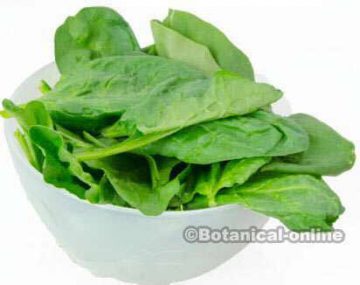
In the first place, in no case should we forget that the purpose of babies mash and supplementary feeding in the baby serves above all so that their palate gets used to the new flavors. The main source of energy for the baby is breast milk, and you do not need to eat large quantities of any other food.
It is considered that the risk of poisoning is high when the baby eats more than one mashed vegetables a day, where at least half are spinach. A spinach-only vegetable cream could also produce it. A puree containing 20% Swiss chard would contribute 60% of the maximum intake of nitrates.
It is for this reason that the Spanish Agency for Food Safety (AESAN) recommends delaying the introduction of vegetables containing many nitrates, such as chard and spinach in the feeding of babies up to 12 months of age
- It is considered that the risk of poisoning is high when the baby eats more than one mashed vegetables a day, where at least half are spinach.
How to avoid blue baby syndrome?
The advice given to avoid this problem are:
- Do not include spinach or chard in baby’s purees before the first year of life, or do so in very little quantity.
- If these vegetables are included before 12 months, ensure that the content of spinach and / or chard is not more than 20% of the total content of the purée.
- A lot of caution with the introduction of edible plants that can be very rich in nitrates, such as mallow, goosefoot, warmseed or epazote or red-root amaranth. They probably are not suitable plants for babies.
- Do not give more than one serving of spinach and / or chard a day to children between 1 and 3 years old.
- Do not give spinach and / or Swiss chard to children with diarrhea or gastrointestinal problems.
What foods are rich in nitrates?
The presence of nitrates in plants depends on environmental factors, for example, whether the soil has been fertilized with manure or nitrates. In addition, there are certain plants that tend to accumulate nitrates.
- The vegetables richest in nitrates are leafy vegetables, such as spinach, lettuce, cabbage, thistles, parsley, celery and arugula.
* More information: Foods rich in nitrates
blue baby syndrome methemoglobinemia cyanosis
Poster with the definition of the blue baby syndrome, causes and remedies as natural as controlling the ingestion of foods rich in nitrates.
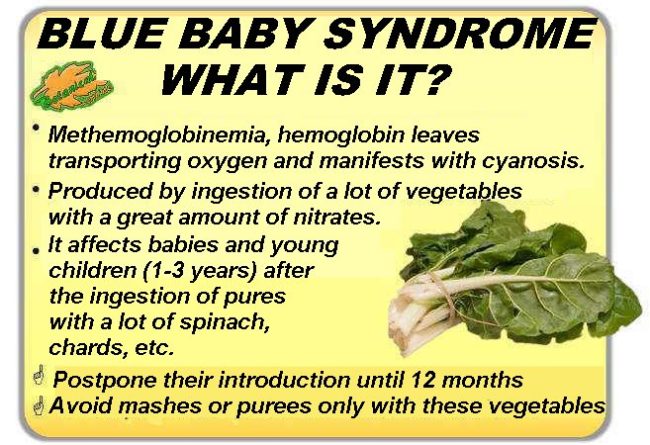
Is the consumption of vegetables with nitrates dangerous?
In most people, the consumption of vegetables with nitrates does not pose a risk to health, quite the contrary. The ingestion of foods rich in nitrates, which are mainly vegetables, is not harmful, but totally beneficial. The only problem is found in babies and small children, with whom one should be somewhat more cautious with food.
- In most people, the consumption of vegetables with nitrates does not pose a risk to health, quite the contrary. Eating green leafy vegetables is usually very healthy and beneficial and its absence in the diet, harmful.
![]() More information on babies and children diet
More information on babies and children diet

